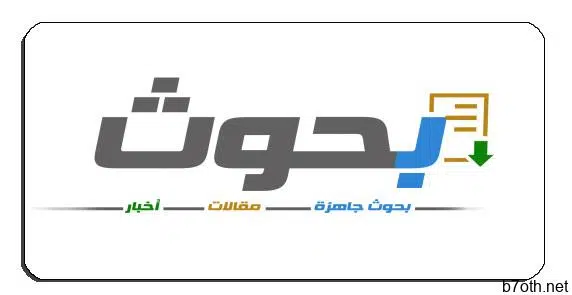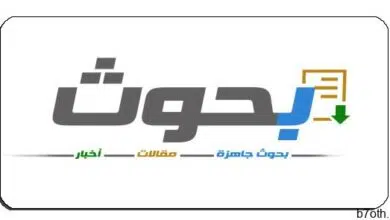بحث عن اهم الجمل في محادثات اللغة الانجليزية جاهز

most important sentences in English conversation These first eight phrases can be used in many different situations.
1. Thanks so much.
This is a simple sentence you can use to thank someone.
To add detail, say:
Thanks so much + for + [noun] / [-ing verb].
For example:
Thanks so much for the birthday money.
Thanks so much for driving me home.
2. I really appreciate…
You can also use this phrase to thank someone. For example, you might say:
I really appreciate your help.
Or you can combine #1 and #2:
Thanks so much for cooking dinner. I really appreciate it.
Thanks so much. I really appreciate you cooking dinner.
3. Excuse me.
When you need to get through but there’s someone blocking your way, say “Excuse me.”
You can also say this phrase to politely get someone’s attention. For example:
Excuse me sir, you dropped your wallet.
Excuse me, do you know what time it is?
4. I’m sorry.
Use this phrase to apologize, whether for something big or small. Use “for” to give more detail. For example:
I’m sorry for being so late.
I’m sorry for the mess. I wasn’t expecting anyone today.
You can use “really” to show you’re very sorry for something:
I’m really sorry I didn’t invite you to the party.
5. What do you think?
When you want to hear someone’s opinion on a topic, use this question.
I’m not sure if we should paint the room yellow or blue. What do you think?
6. How does that sound?
If you suggest an idea or plan, use this phrase to find out what others think.
We could have dinner at 6, and then go to a movie. How does that sound?
Let’s hire a band to play music, and Brent can photograph the event. How does that sound?
7. That sounds great.
If you like an idea, you can respond to #6 with this phrase. “Great” can be replaced with any synonym, such as “awesome,” “perfect,” “excellent” or “fantastic.”
A: My mom is baking cookies this afternoon. We could go to my house and eat some. How does that sound?
B: That sounds fantastic!
8. (Oh) never mind.
Let’s say someone doesn’t understand an idea you’re trying to explain. If you’ve explained it over and over and want to stop, just say “oh, never mind.” You can now talk about something else!
You can also use “never mind” to mean “it doesn’t matter” or “just forget it.” In these situations, say it with a smile and positive tone, though. Otherwise, when you say this phrase slowly with a falling low tone, it can mean you’re bothered or upset.
A: Are you going to the grocery store today?
B: No, I’m not. But why—do you need something?
A: Oh, never mind. It’s okay, I’ll go tomorrow.
Phrases for Learning English
basic-english-phrases
As an English learner, you’ll need to tell others that English is not your first language. You’ll also need to ask native speakers to repeat phrases and words or to speak slower. The following phrases will be useful for this.
9. I’m learning English.
This simple phrase tells people that English is not your native language. If you’re a total beginner, add “just started” after I: “I just started learning English.”
My name is Sophie and I’m learning English.
10. I don’t understand.
Use this phrase when you don’t understand what someone means.
Sorry, I don’t understand. The U.S. Electoral College seems very confusing!
11. Could you repeat that please?
If you’d like someone to say a word, question or phrase again, use this question. Since “to repeat” means “to say again,” you can also ask, “Could you say that again please?”
We can say “please” either at the end of the question or right after “you,” like this:
Could you please repeat that?
Could you repeat that please?
12. Could you please talk slower?
Native speakers can talk very fast. Fast English is hard to understand! This is an easy way to ask someone to speak more slowly.
Note: This phrase is not grammatically correct. However, it’s used often in everyday (casual) speech. The grammatically correct question would be, “Could you please talk more slowly?”
That’s because “slowly” is an adverb, so it describes verbs (like “talk”). “Slower” is a comparative adjective, which means it should be used to describe nouns (people, places or thing), not verbs. (For example: My car is slower than yours.)
A: You can give us a call any weekday from 8:00 a.m. to 5:00 p.m. at five five five, two five zero eight, extension three three—
B: I’m sorry, could you please talk slower?
13. Thank you. That helps a lot.
After someone starts speaking more slowly for you, thank them with this phrase.
You can use it in many other situations, too.
A: Ben, could you please make the font bigger? It’s hard for me to read the words.
B: Sure! I’ll change it from size 10 to 16. How’s this?
A: Thank you. That helps a lot.
14. What does ~ mean?
When you hear or see a new word, use this phrase to ask what it means.
A: What does “font” mean?
B: It’s the style of letters, numbers and punctuation marks when you type. A common font in the USA is Times New Roman.
15. How do you spell that?
English spelling can be tricky, so make sure to learn this question. You could also ask someone, “Could you spell that for me?”
A: My name is Robbertah Handkerchief.
B: How do you spell that?
16. What do you mean?
When you understand the words one by one, but not what they mean together, use this question. You can ask it whenever you’re confused about what someone is telling you.
A: The Smiths do have a really nice house, but the grass is always greener on the other side.
B: What do you mean?
A: I mean that if we had the Smith’s house, we probably wouldn’t be happier. We always think other people have better lives than us, but other people have problems too.
Phrases for Introducing Yourself and Making Friends basic-english-phrases Here are some phrases for introducing yourself when you meet new people, and questions to learn more about them.
17. Hi! I’m [Name]. (And you?)
Here’s an informal greeting you can use when you meet new friends. If the person doesn’t tell you their name, you can ask “And you?” or “And what’s your name?”
Hi! I’m Rebecca. And you?
18. Nice to meet you.
After you learn each other’s names, it’s polite to say this phrase.
A: Hi Rebecca, I’m Chad.
B: Nice to meet you, Chad.
A: Nice to meet you too.
.
.
__________________________________
اضغط الرابط أدناه لتحميل البحث كامل ومنسق جاهز للطباعة



